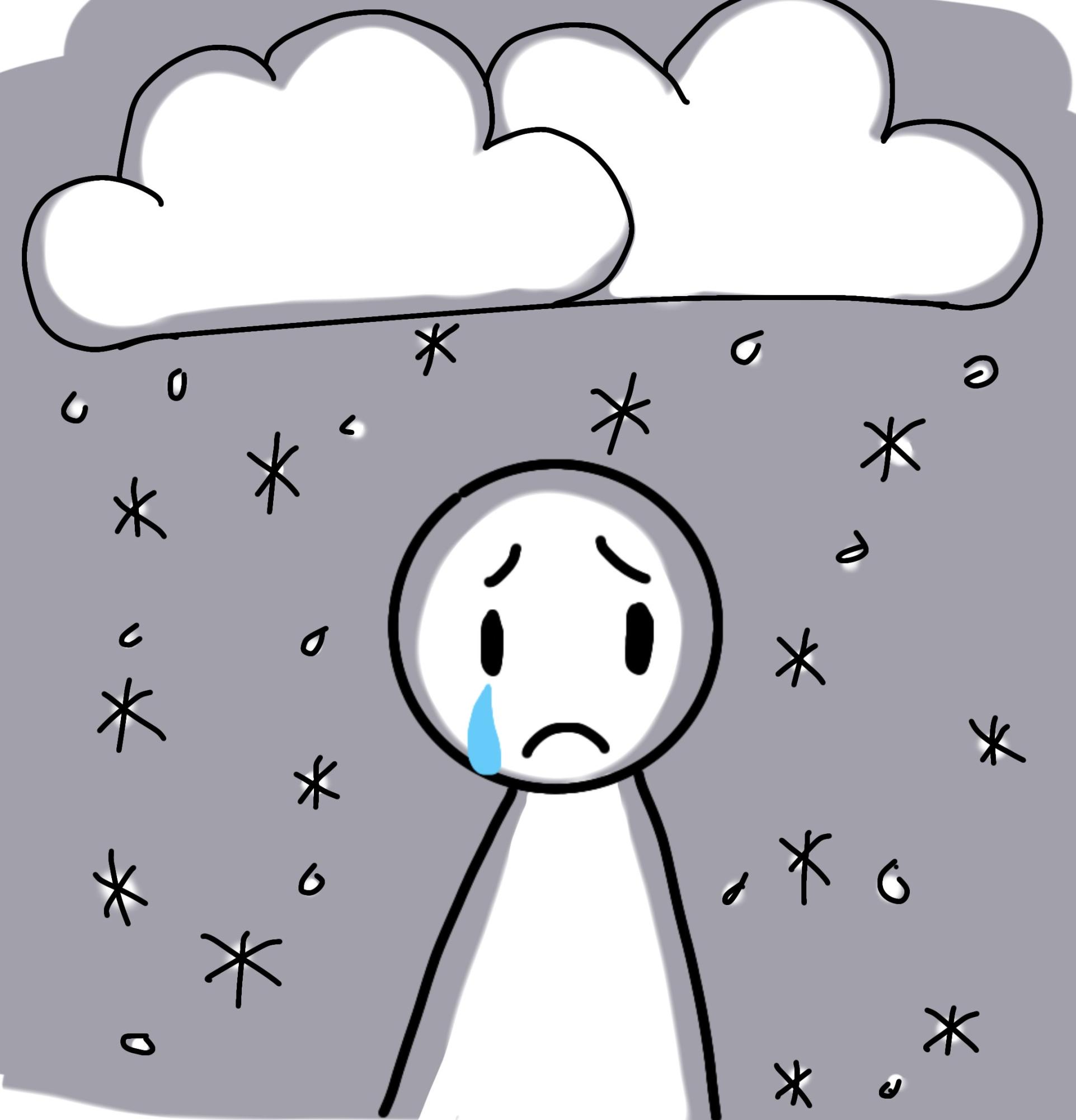As the leaves shrivel off the trees and the temperature sinks into the single digits, many teenagers experience the well-known phenomenon seasonal depression or Seasonal Affective Disorder (SAD)
For Kate Lorenz, sophomore, seasonal depression is a reality. External factors pile up and make her depression worse.
“Isolation, snow and people,” Lorenz said. “It’s the loneliness I feel mostly. I always feel isolated and I don’t like talking to people during this time of year.”
Lorenz said the best way to cope with her sadness is by going to therapy.
“I get recommended a lot of ways to cope by my therapist, like hyper-fixating on a TV show or a movie or just diving back into things I love doing like writing, reading and drawing,” Lorenz said.
Though most experience seasonal depression during the winter months, some also develop it during the springtime, Taylor Decker, social worker, said.
“There are two varieties: there’s a fall-winter onset and a spring onset, which is less common. Winter onset is most common,” Decker said. “And that is really just chemical changes in the brain that are due to weather changes to shorter days with less sunlight.”
Decker said some treatment for SAD is going outside to get more sunlight and getting a consistent sleep schedule.
“When it is darker out earlier, your body makes more melatonin,” Decker said. “It’s important just for you to make sure that you’re consistent, so not sleeping until noon on the weekends.”
Lilyann Agler, freshman, has her own experiences with SAD.
“One day I’ll be totally fine, I’ll be energetic, and I’ll be going out and doing whatever I want, but the next, I’ll just be moping in my bed just laying there,” Agler said.
Agler also said her social life declines significantly during the winter and she worries about her grades.
“It also boils down to the stress of schoolwork and being ‘smart enough’ compared to my classmates,” Agler said.
Greg O’Donnell, sophomore, said he always has his headphones with him, no matter where he goes. He listens to music, usually from Radiohead and Alex G, to help deal with feelings of sadness.
“Their songs help me relate to somebody during this time,” O’Donnell said.
Katelyn Skiles, sophomore, said she thinks the pressure of school on students during the winter is difficult to tread.
“I understand the difficulties of providing for every 2,300 students at this school,” Skiles said, “But I do believe that eventually, the sun will shine again and the flowers will bloom. That’s when I know that everything will be alright.”







